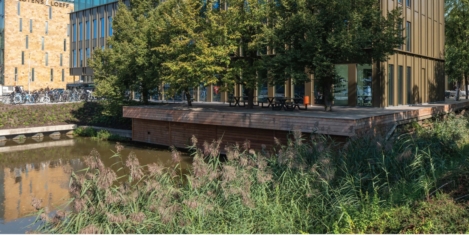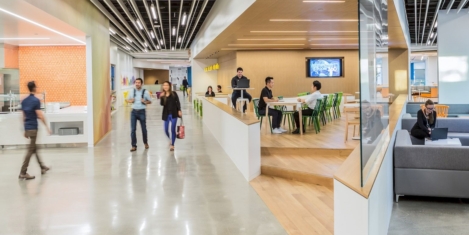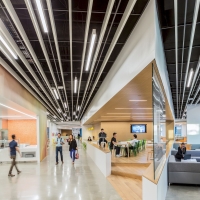To provide the best experiences, we use technologies like cookies to store and/or access device information. Consenting to these technologies will allow us to process data such as browsing behaviour or unique IDs on this site. Not consenting or withdrawing consent, may adversely affect certain features and functions.
The technical storage or access is strictly necessary for the legitimate purpose of enabling the use of a specific service explicitly requested by the subscriber or user, or for the sole purpose of carrying out the transmission of a communication over an electronic communications network.
The technical storage or access is necessary for the legitimate purpose of storing preferences that are not requested by the subscriber or user.
The technical storage or access that is used exclusively for statistical purposes.
The technical storage or access that is used exclusively for anonymous statistical purposes. Without a subpoena, voluntary compliance on the part of your Internet Service Provider, or additional records from a third party, information stored or retrieved for this purpose alone cannot usually be used to identify you.
The technical storage or access is required to create user profiles to send advertising, or to track the user on a website or across several websites for similar marketing purposes.
 New research from Fellowes Brands claims to reveal the ‘alarming’ impact enforced remote work is having on the mental wellbeing and physical health of the nation. Over a third (35 percent) of UK workers admit feeling stressed or anxious, lonely and isolated (32 percent) and tired or lacking in energy (38 percent), while working from home during lockdown. The study is based on a survey of 1,000 UK office workers who had worked from home for at least four months. (more…)
New research from Fellowes Brands claims to reveal the ‘alarming’ impact enforced remote work is having on the mental wellbeing and physical health of the nation. Over a third (35 percent) of UK workers admit feeling stressed or anxious, lonely and isolated (32 percent) and tired or lacking in energy (38 percent), while working from home during lockdown. The study is based on a survey of 1,000 UK office workers who had worked from home for at least four months. (more…)








 Companies are searching for ways to reinvent the office and give employees reasons to return to their workplace and a new report by
Companies are searching for ways to reinvent the office and give employees reasons to return to their workplace and a new report by 
 Smart Building Certification, the organisation behind the smart accreditation, awarded its first platinum building. The founders of Smart Building Certification handed the first official platinum certification over to Coen van Oostrom, Founder and CEO of EDGE.
Smart Building Certification, the organisation behind the smart accreditation, awarded its first platinum building. The founders of Smart Building Certification handed the first official platinum certification over to Coen van Oostrom, Founder and CEO of EDGE. 
 Improving air quality in the fight against COVID-19 could give businesses the edge over their competitors and attract more customers, according to a top UK university scientist. Writing in a new report for facilities services provider
Improving air quality in the fight against COVID-19 could give businesses the edge over their competitors and attract more customers, according to a top UK university scientist. Writing in a new report for facilities services provider 
 Employee engagement levels may have actually improved during the COVID-19 pandemic, claims a recent survey undertaken by intermediary
Employee engagement levels may have actually improved during the COVID-19 pandemic, claims a recent survey undertaken by intermediary 
 According to a recent
According to a recent 




 Workspace Show is an exciting addition to the global design events calendar, launching on 21 January this year, with the inaugural edition taking place from 4-5 November 2021 at London’s Business Design Centre, at the heart of the UK’s commercial interiors community. With a theme of ‘re-designing tomorrow’s commercial interiors together’ the show aims to unite architects, designers, developers, contractors, facilities managers, procurement managers and more in one place to explore and share the latest industry thinking from product launches to a comprehensive talks program to networking opportunities aplenty.
Workspace Show is an exciting addition to the global design events calendar, launching on 21 January this year, with the inaugural edition taking place from 4-5 November 2021 at London’s Business Design Centre, at the heart of the UK’s commercial interiors community. With a theme of ‘re-designing tomorrow’s commercial interiors together’ the show aims to unite architects, designers, developers, contractors, facilities managers, procurement managers and more in one place to explore and share the latest industry thinking from product launches to a comprehensive talks program to networking opportunities aplenty. 
 Organisations face a crisis of trust this year if they continue to make workplace decisions in the dark, according to employee experience platform,
Organisations face a crisis of trust this year if they continue to make workplace decisions in the dark, according to employee experience platform, 
 The way in which we work has changed in a way no one would have ever predicted as a result of last year’s pandemic. Consequently, many businesses have chosen to adopt to an agile working practise. This coupled with the rapid evolution of the hybrid workplace has allowed more employees than ever the flexibility to work from home, many people however still crave that interaction with colleagues, and the ‘corridor conversations’ that cannot be replicated via Zoom and can only happen with workplace collaboration.
The way in which we work has changed in a way no one would have ever predicted as a result of last year’s pandemic. Consequently, many businesses have chosen to adopt to an agile working practise. This coupled with the rapid evolution of the hybrid workplace has allowed more employees than ever the flexibility to work from home, many people however still crave that interaction with colleagues, and the ‘corridor conversations’ that cannot be replicated via Zoom and can only happen with workplace collaboration. 








January 21, 2021
Hybrid working gives managers the chance to excel
by Paul Jewitt-Harris • Comment, Flexible working